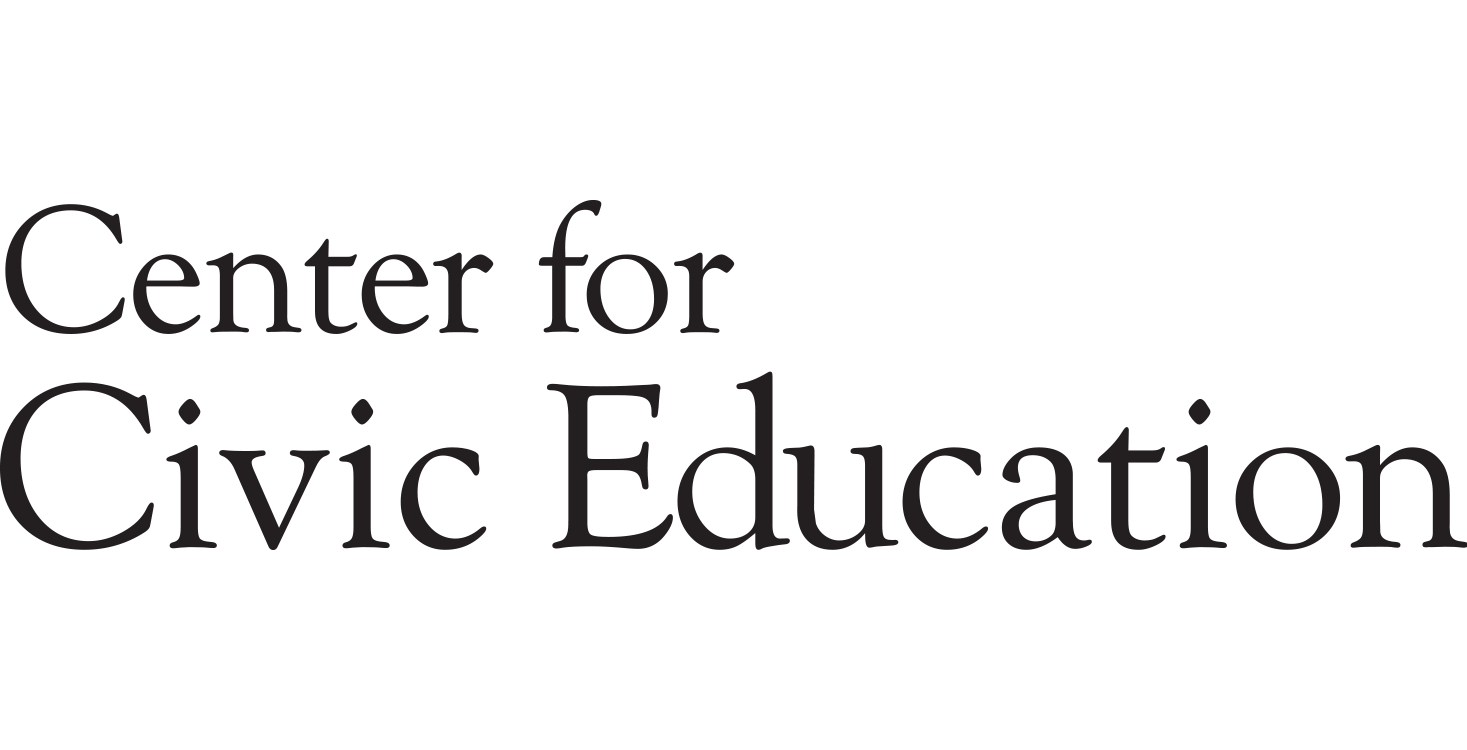Meghan Volcy, Coordinator of National Grant Projects
The Center for Civic Education hopes to leverage its data, research, and partnerships to bring information straight from the classroom into your hands. This new Research Impact feature will serve as an avenue where the Center will engage our readers and network of civics advocates and champions through highlighting, exploring, and facilitating discussions around emerging qualitative and quantitative research that shows the impact of our programs and civic education more broadly.
Introduction
Literacy and English Language Arts (ELA) education are fundamental components of a student's journey in academics and beyond. Essential components of a literacy curriculum include phonological awareness, phonics, fluency, vocabulary, and comprehension, while the critical pieces that complete the puzzle of an English Language Arts (ELA) curriculum are listening, speaking, reading, writing, viewing, and producing texts. Interestingly, civics serves common goals with literacy education, as both aim to cultivate critical thinking and engagement in students. So much so that the National Council of Teachers of English (NCTE) has identified an intrinsic link between English Language Arts (ELA) and civic education, emphasizing the importance of integrating the two.
Research shows that students who engage in civics education improve not only in civic skills, knowledge, and dispositions but also show growth in how to communicate, engage with text critically, and improve in reading and writing – all foundational skills in ELA and literacy – all through an equity lens.
This month’s Research Impact will explore the question of how civic education, and the Center programs in particular, support students in developing literacy and ELA knowledge and skills.
Effective Communication
Participation in civic education enhances students' communication skills by providing opportunities to articulate ideas on civic issues and engage in inclusive dialogue. Research conducted by Western Washington University reports that participation in civic education also improves students’ ability to articulate ideas with confidence and accuracy, thereby enhancing their writing and speaking abilities.
The Center’s curricula and program design allows students to engage in debates, deliberations, and collaborative projects within Center programs. In the We the People program, students study, prepare, and practice for simulated congressional hearings, or a simulation where students "testify" before a panel of judges acting as members of Congress, demonstrating their knowledge and understanding of constitutional principles and ability to evaluate, take, and defend positions on relevant historical and contemporary issues. Students also engage in hearings by way of participating in national and state competitions like the National Finals and the National Invitational. Project Citizen, another Center text and program, has students explore and research policy problems in their communities, and present their proposed solutions to their community in a simulated or actual public hearing.
Through these activities, students learn to express their perspectives on civic issues, deepen their understanding of equity in civics, and develop proficiency in communication, an essential component of ELA education.
Engaging with Complex Text Critically
Civic education provides a rich context for understanding complex texts and ideas, enhancing students’ comprehension skills. When students are able to read, evaluate, and analyze text critically, they learn to evaluate evidence, analyze diverse perspectives, and construct coherent arguments. When students engage in civic learning, they develop critical thinking abilities, learn to analyze complex issues, and recognize their agency. By exploring civic topics through literacy practices, students become informed decision-makers who can contribute positively to their communities, and in engaging with texts like historical documents, court rulings, and policy briefs, students can explore with their classes the reality of how while a powerful tool for advancing towards justice, civics can and has impacted marginalized communities. Research from the National Council for the Social Studies (NCSS) suggests that contextual learning promotes a deeper engagement with the material by connecting it to real-world situations and contexts, improving overall literacy, highlighting the correlation between critical thinking and literacy, and how analytical exercises foster a deeper understanding of texts and concepts. Research also indicates that project-based learning (PBL) in civics improves students’ literacy skills by enhancing reading and writing comprehension, the effect of which also extends to high-need students, including students of color and students from lower-income households.
Center programs encourage critical thinking and empower students to become informed decision-makers who contribute positively to their communities. For example, in the We the People program, students critically examine laws and constitutional principles and gain insights into equity gaps and the need for legal reforms in some of our systems. Project Citizen primarily uses PBL, and is designed to serve as a “gateway to life-long civic engagement” for students, while also helping them develop “civic related social and emotional learning (SEL) competencies, such as critical thinking and collaborative skills, as well as facility with using science, technology, engineering, and mathematics (STEM) skills to address public policy concerns.” Research shows that the use of in civics education results in “increased knowledge retention and enhanced acquisition of dispositions and skills across a range of disciplines,” including literacy. Project Community, a new Center grant that focuses on media literacy and public policy, will push students to engage with media in a thoughtful, complex way in order to deepen their media literacy skills and understand how to navigate and contribute to an increasingly media-saturated world. CCE programs encourage critical thinking and empower students to become informed decision-makers who contribute positively to their communities.
Reading Improvement
Reading proficiency is critical to academic success and civic engagement, and findings from the Thomas B. Fordham Institute's 2020 study share that not only does civic education enhance traditional literacies within ELA, but interestingly, the research also finds that contrary to conventional wisdom, additional time spent on ELA instruction does not show a significant relationship with reading improvement. Meanwhile, The Early Childhood Longitudinal Study reports that social studies is the only subject with a “clear, positive, and statistically significant effect on reading improvement,” highlighting the importance of integrating civic education into the curriculum to enhance literacy skills. By engaging with diverse written narratives and historical inequities, students broaden their understanding of equity while honing their literacy skills. Integrating civic education into the curriculum correlates with increased reading proficiency, surpassing the effects of additional ELA instruction alone.
In We the People and Project Citizen programs, students engage in extensive document-based research, including reading a variety of primary and secondary sources. In We the People, students research constitutional topics throughout the course of the curriculum, especially in preparation for their simulated congressional hearings. Meanwhile, Project Citizen students often review articles, letters, and other documents, which they cull through and include in the documentation binder that accompanies their visual portfolio.
Writing Skills
Civics, by nature, prompts people to craft persuasive arguments and advocate for change. Students who learn at the intersection of civics education and improved writing not only hone their writing skills through crafting persuasive essays, policy proposals, or letters to elected officials, but they also engage in meaningful discourse. By engaging in writing activities that address real-world issues, students develop the ability to articulate their perspectives and contribute meaningfully to conversations about equity and justice.
Programs like Project Citizen foster students' writing skills by guiding them through the research process and empowering them to articulate policy solutions effectively. Project Citizen students develop their own portfolio displaying their research process, which consists of mixed-methods research and findings on the problem and the proposed policy. High school Project Citizen participants demonstrated significantly greater growth (P < .05) than comparison students in their persuasive writing ability and their ability to “articulate, research, and advocate policy solutions in essays addressing public policy problems.” Through engaging in written discourse on real-world issues, students learn to amplify marginalized voices, contribute to conversations about equity and justice, and strengthen their writing skills.
Conclusion
The integration of civic education with literacy and ELA enhances students' academic success in all three areas. By actively participating in civic learning experiences, students develop critical thinking skills, engage with complex texts, and cultivate effective communication and writing abilities. Active participation in collaborative projects and simulated congressional hearings within Center programs like Project Citizen, Civics that Empowers All Students (CEAS), and the James Madison Legacy Project (JMLP) hones students' ability to use reading skills to evaluate complex text and evidence and use their written and oral communication skills to construct coherent arguments, with CEAS and JMLP, in particular, being intentionally designed to bring the We the People program to new populations, empowering and equipping historically marginalized and underserved students with more civic and ELA skills. Through civic education and programs like those offered by the Center for Civic Education, students are not only encouraged to excel academically but also become advocates for positive change in their communities equipped with the literacy and ELA proficiencies necessary for success in their academic, professional, and civic lives.
Resources
- National Reading Panel - Teaching Children to Read: An Evidence-Based Assessment of the Scientific Research Literature on Reading and Its Implications for Reading Instruction
- TeachingWorks - K-12 Subjects: English Language Arts
- National Council of Teachers of English - Reading, Writing & Raising Voices: The Centrality of Literacy to Civic Education
- Project Citizen Research Program Final Report (2024)
- The Use of Critical Literacy Methods to Teach for Democratic Consciousness
- Center for Civic Education - We the People Curricular Program
- Center for Civic Education - We the People Simulated Congressional Hearings
- Center for Civic Education - Project Citizen Curricular Program
- Center for Civic Education - Project Citizen Example Portfolios
- Center for Civic Education - Project Citizen Evaluation Brief 2007
- National Council for the Social Studies - National Curriculum Standards for Social Studies
- Fostering Civic Engagement Through Project-Based Learning
- Project-Based Learning in Social Studies
- PBL & Literacy: Teaching Reading While on a Learning Journey
- "Project Citizen" and the Civic Development of Adolescent Students in Indiana, Latvia, and Lithuania
- Principal Magazine (National Association of Elementary School Principals): Educating for Civic Engagement
- How Social Studies Improves Elementary Literacy
- Center for Civic Education - Civics that Empowers All Students
- Center for Civic Education - James Madison Legacy Project Expansion







